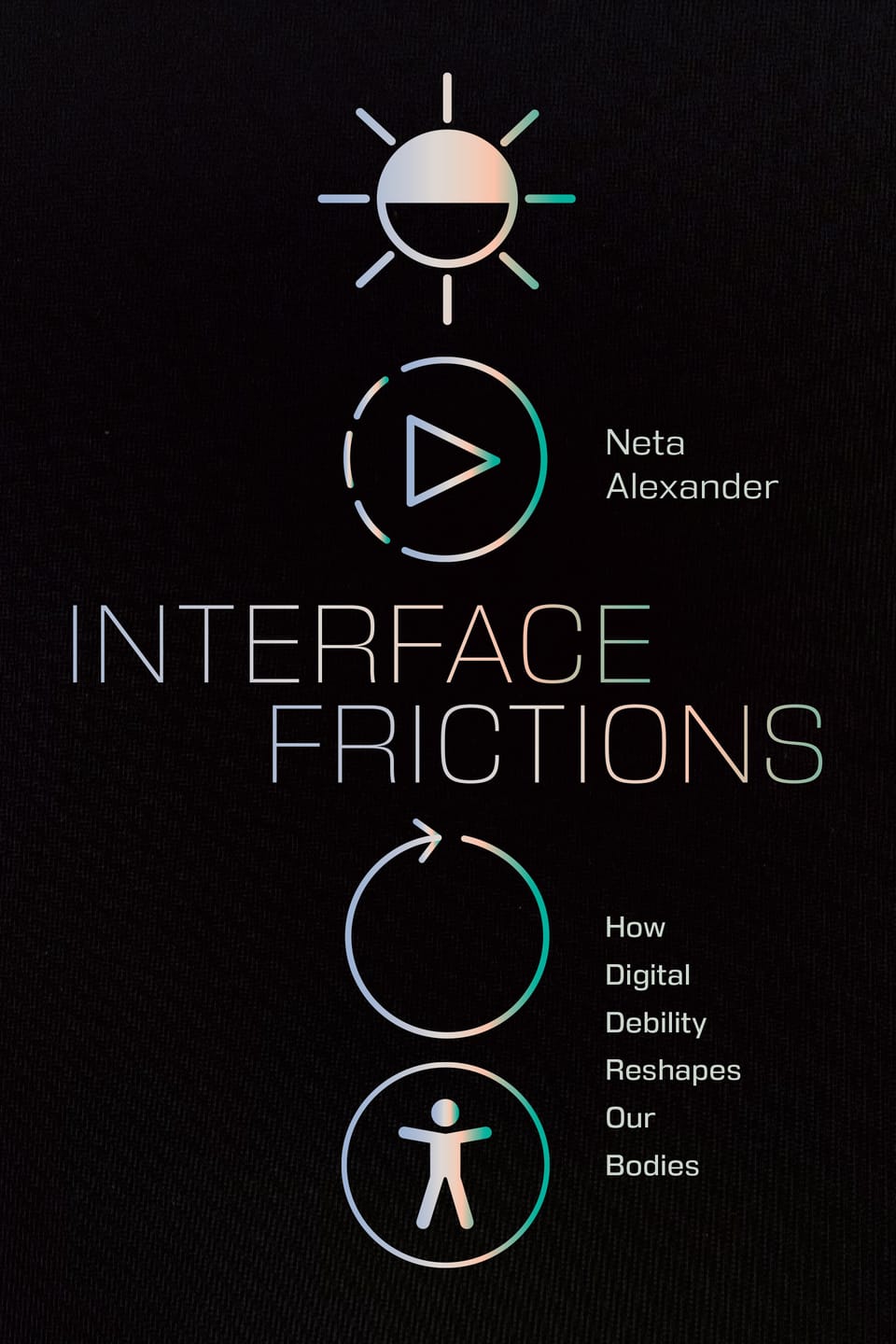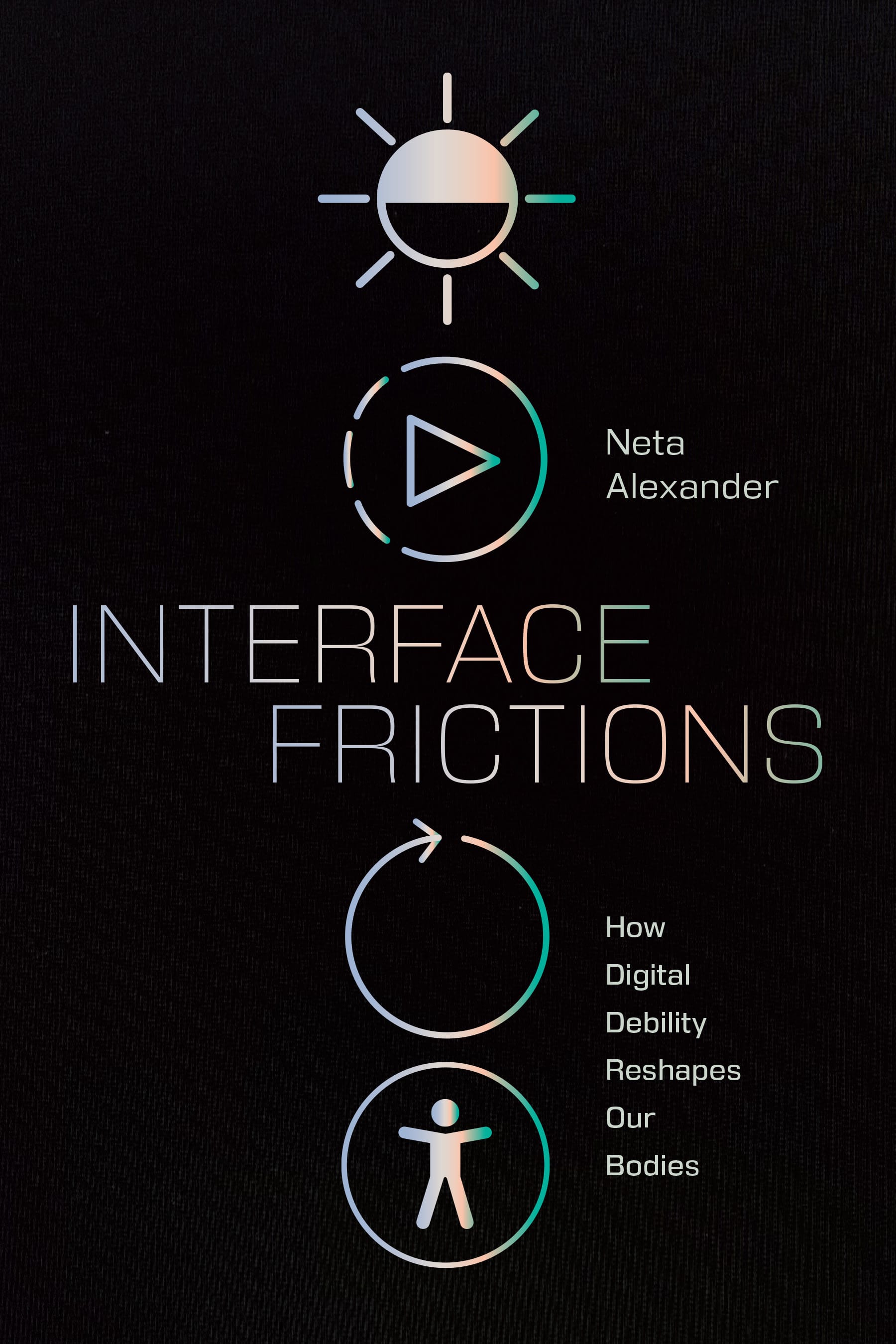Interface Frictions: How Digital Debility Reshapes Our Bodies

Hey party people! I’m excited to offer 3 paperbacks to anyone in the US, UK, and Canada of Interface Frictions: How Digital Debility Reshapes Our Bodies by Neta Alexander. This is a topic that I am super interested in. Details below.

About the book
In Interface Frictions, Neta Alexander explores how ubiquitous design features in digital platforms reshape, condition, and break our bodies. She shows that while features such as refresh, playback speed, autoplay, and night mode are convenient, they can lead to “digital debility”—the slow and often invisible ways that technologies may harm human bodies. These features all assume an able-bodied user and at the same time push users to ignore their bodily limitations like the need for rest, nourishment, or movement. Building on the lived experiences of people with disabilities, Alexander explores alternative design solutions that arise from a multisensorial approach to communication. She demonstrates what can be gained from centering the nonaverage user, such as blind people who pioneered ways to control the playback speed of media, and Netflix subscribers with invisible disabilities like PTSD who successfully pushed the company to redesign its previews autoplay feature. Drawing on artworks, video games, and creative hacking by users with disabilities, Alexander challenges our understanding of media consumption, the attention economy, and the digital interface.
About the author
Neta Alexander is Assistant Professor of Film and Media at Yale University and coauthor of Failure.
Details
1) Any disabled person in the US, UK, or Canada is eligible to receive a paperback. You do not need to disclose any details about your disability.
If you already received a book from one of my previous giveaways, please consider letting other people have a chance.
2) If you do not receive a reply that means the books have been claimed or you did not include all the required information.
3) Send an email to DisabilityVisibilityProject@gmail.com with 'Neta Alexander’ in the title of the message. Do not reply to this post!!
4) Include the following information in your message:
- First and last name
- Mailing address
- Phone number (this is required for shipping)
Please note: I will send this information along with your email address to the publisher. They are responsible for confirming your details and sending you the book. Please be patient!
Member discussion